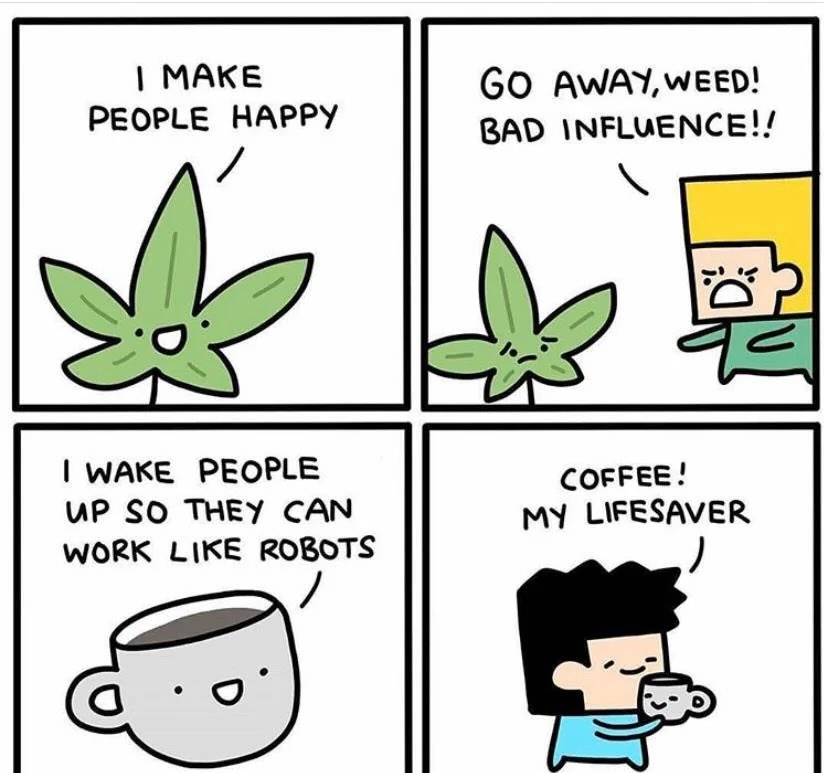I had my first nihilism at high school / college.
Being raised in a protective and rather wholesome environment, I naturally became full of morality and ethics as a child. This obviously changed when I experienced my late teen existential crisis, questioning the essence of life, the universe, and everything.
As a rational person, I came to the conclusion that the universe is materialistic. There’s no God, no creator, we just happened to exist. We this kind of premise, the obvious deduction is that morality is a social construct, and there’s not any intrinsic meaning to life. Morality is just the general consensus of a specific group of people in a specific time & space. Without a higher being, a creator, or a God, it’s impossible for absolute morality and an intrinsic meaning of life to exist. We view many practices that were common in the past to be immoral, and at some point in the future, we’ll be viewed as criminals for exercising something that we do every day as well.
Holding this kind of view, I continue my life as an ethical and hard-working absurdist.
Around the same time I also discovered other nihilistic theories like the simulation theory, and believed them on a rational level.
I called this the 2nd level of nihilism, which was also what most nihilistic philosophers operated on. But there are other levels as well.
3 Levels of Nihilism
In my view, there are 3 levels of nihilism: normie’s nihilism, philosopher’s nihilism, and mathematician’s nihilism.
Stereotypical Nihilism
The first level is normie’s nihilism, or the stereotypical nihilism. It’s what most uneducated or irrational people think about when they hear the word “nihilism”. It basically means being edgy and cynical, hating everyone everything everywhere all at once.
A person holding this level of nihilism is either an edgy “I’m 14 and this is deep” type of teenager or someone who hates their life but doesn’t really think so deeply or rationally about the essence of life.


Philosophical Nihilism
The second level is philosopher’s nihilism, which is basically what I described at the start. A person holding this kind of view would believe that human consciousness is not something that is given, but just a natural phenomena generated from a material brain somehow.
People holding this level of nihilism would not believe in absolute morality or an intrinsic meaning of life. They would also accept, or at least struggle to find valid reasons to reject simulation theory, and that there’s no fundamental reason that artificial intelligence cannot achieve human consciousness.
I’d say the key concept of level 2 nihilism is determinism, the belief that the universe as a whole is a deterministic system. If we know every information possible in the universe at a certain time and has an infinite amount of computing resource, we can deduct the entire future and the past of the universe. So everything is inevitable.
At high school-college, however, I wasn’t actually fully subscribed to it. On a rational level I did think that the universe is deterministic. I did reject the intrinsic meaning of life and an absolute morality, but deep down I still believed that consciousness was something special and that free will existed, although I struggled to find how it’s actually generated (and so do the scientists around the world).
Mathematical Nihilism
I just discovered this level and still trying to make sense of it, so what I’m about to describe may not be fully coherent to someone who truly understands it.
The third level of nihilism, is the mathematical nihilism. In this level, we finally realized that consciousness is a perspective, an idea, a human construct, and causality is just an experience.
In Many-Worlds Interpretation, the wave function does not collapse when an observation is made. Rather, the whole universe is a wave function, a superposition of an infinite amount of states, and you’re just cast into one of the many states upon an observation.
Even without quantum physics, the “consciousness” that we’re so proud of still doesn’t exist. If we can find some states of particles in the dust resembling the computation of human consciousness when assembled together in a specific arrangement, who is to say it’s not the same as “consciousness”?
We do not enjoy a special elevated god-given or universe-chosen ability called “consciousness”. We are just as conscious as a city, a machine, a plant, a function, a random number generator, or randomly selected permutations of particle states scattered across the universe rearranged into a time series.
Level 2 nihilism is already a rejection to consciousness / free will (there’s a belief called compatibilism claiming that free will can exist under determinism but everyone with half a brain cell would know that it’s copium, a failure to internalize determinism), but level 3 nihilism is a rejection to causality.
Better to quote someone who knows what they’re talking about rather than trying to explain something that I haven’t yet been able to fully internalize.
I believe the argument goes like this: assume that conscious agents can be simulated (that is, consciousness is computable). What is computation? If sudden wind arranges leaves on the ground into a pattern that looks like “2 + 2 = 4”, was there a computation? We would usually answer “no”, as computation, like many other things, requires causal connection. But Greg Egan states that “there is nothing more to causality than the correlations between states”.
Now, a deterministic simulation can be represented as a series of states recorded on a medium. Then you, an observer, can rewind and inspect what’s going on there, similar to reading a book or watching a movie. But the inhabitants of the simulation couldn’t care less about you observing their states. They already “exist”. In that case, why do we need the states of the simulation be recorded on the “film” in the order that makes sense for an outside observer? Surely a random arrangement would not affect the “simulation”. The same goes for the encoding.
Now, if the arrangement doesn’t matter, and the encoding doesn’t matter, why there needs to be a specific physical medium at all? Surely somewhere in the Universe you can find arrangements of “dust” that “encode” the same states (in no particular order).
– ajconway
Articles or discussions related to this concept:
- Lazy Immortality
- Statistical Immortality
- Dust Theory from Greg Egan’s Permutation City
- Mathematical Universe Hypothesis
The 2nd level of nihilism is very easy to understand, tho not necessarily easy to embody as free will is so hailed and romanticized in human culture. The 3rd level, however, is so abstract and against human experience that I’d imagine even the mathematicians themselves would have a hard time truly believing in it.
What does this mean?
On a personal level, it doesn’t mean much as you’re still controlled by your hunger, thirst, fear, primal instincts, lust, anger, and stuff. Your happiness still depends on your utility function, which is mostly independent of the meaning of life or the value of free will. On a social level, however, it’d be hard to truly care about other people and the society as a whole. Just get busy and you’ll forget about it I guess, temporarily.